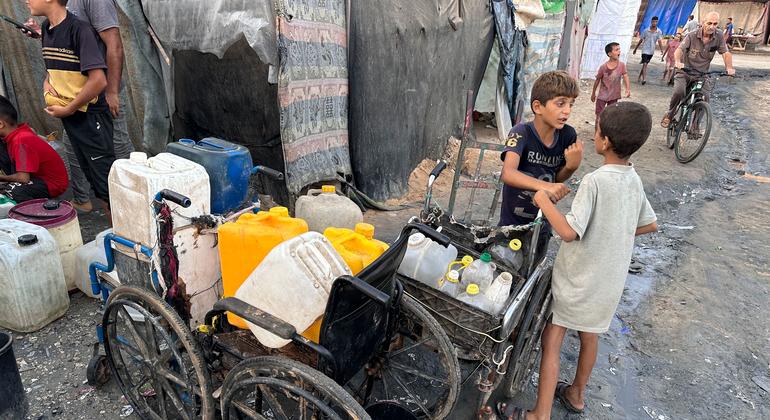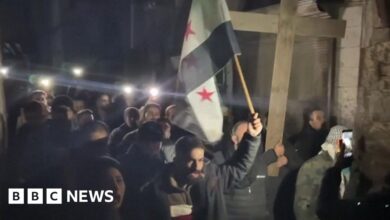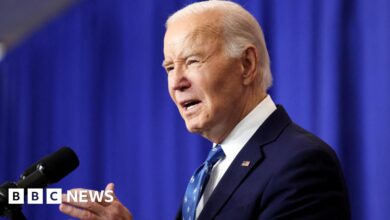Humanitarian operations halted in Gaza pave way for polio vaccination


WHO The Occupied Palestinian Territory (OPT) representative, Dr. Rik Peeperkorn, said the two-phase vaccination campaign is expected to begin this Sunday in central Gaza for three days, then move to the southern and northern areas. A second dose will be administered four weeks later.
“In each campaign, the Palestinian Ministry of Health coordinated with WHO, [the UN Children’s Fund] UNICEF, UNRWA [the UN agency for Palestine refugees] and partners, will provide two drops of the new oral polio vaccine type 2 (nOPV2) for more than 640,000 children under 10 years oldDr. Peeperkorn said.
Dosage is ready
The campaign is ready after 1.26 million doses of vaccine were delivered to Gaza and 500 people were deployed to deliver the vaccines. According to the UN health agency, an additional 400,000 doses will soon arrive in Gaza.
Speaking from Gaza, Dr. Peeperkorn welcomed the preliminary commitment with the Israeli military to “Area-specific humanitarian pauses” in the vaccination campaign.
“We call on all parties to halt fighting so that children and families can safely access health facilities. and outreach workers to reach children who cannot access health facilities for polio vaccination,” he said.
The WHO warned that without humanitarian pauses, the operation – a monumental task in any context, not to mention after more than 10 months of fierce fighting, mass casualties and displacement – would not be possible.
The operation will be carried out in phases, each lasting three days, starting in central Gaza, followed by southern and finally northern Gaza.
Obstacles to overcome
Vaccinations will be extended by an extra day if necessary to accommodate increased violence, destroyed roads and damaged infrastructure – all additional hurdles that could hamper the goal of achieving full vaccination coverage within three days in each area.
At least 90 percent vaccination coverage is needed in each campaign to contain outbreaks and prevent the international spread of this sometimes fatal waterborne disease, which can cause lifelong paralysis.
The UN health agency will coordinate with all parties, including Israel’s humanitarian coordination unit, COGAT, to ensure children and families have safe access to health facilities.
“Security is paramount” for more than 2,180 health care and outreach workers ready to support the campaign, Dr. Peeperkorn affirmed.
Vaccines will be delivered to 392 sites and supplemented by around 300 mobile teams – an arrangement that is “not ideal” – but has been “agreed upon by all parties”, he continued. “We will do our best to achieve 90 per cent coverage”.
The routine vaccination campaign has been “very well received” in Gaza and the West Bank, with parents eager to vaccinate their children, according to the WHO. Coverage has reached 95 percent over the years, higher than many other countries..
West Bank operations continue
On the fourth day of Israel’s military operation in the West Bank, humanitarians have voiced concerns about the safety of civilians and aid groups.
Raids by the Israel Security Forces (ISF) in the densely populated areas of Jenin and Tulkarem are reported to have killed at least 15 people.Unhindered access to facilities is essential for accessing and receiving care, as well as providing medical aid.“We call for infrastructure, ambulances, medical staff around hospitals, medical facilities to be protected,” Dr. Peeperkorn stressed.
United Nations Secretary-General António Guterres condemned the escalation late Wednesday, calling for an “immediate cessation” of Israeli activities in the Occupied Palestinian Territory.
Since the war began, 652 Palestinians have also been killed in the West Bank and East Jerusalem, including 150 children, according to the Palestinian Health Ministry. More than 5,400 people have been injured.




